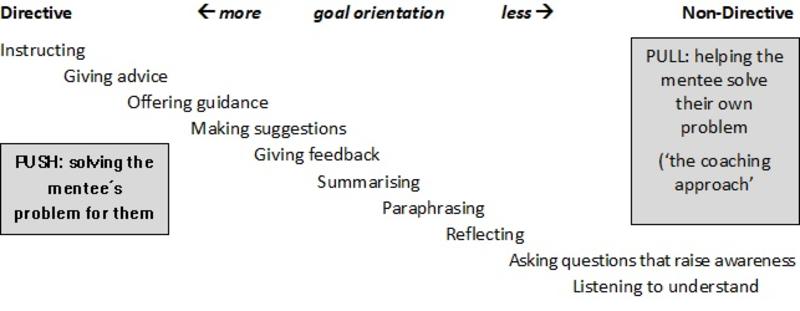Mentoring is a voluntary process in which one person gives their time to help a mentee. The aim is to provide confidential, non-judgemental and constructive support to enable the mentee to develop themselves in whatever way is most appropriate. A mentor may be a sounding board, someone to help you work through your ideas, and someone to throw light on your path.
A mentor is usually, but not always, someone who has faced similar challenges in the past, or who is working at a more senior role in your profession, but should be outside any current hierarchical relationship (e.g. a manager and team member, or a leader and a member of a research group).
The value of mentoring is that it allows an individual to work with an objective, impartial “thinking partner” who will enable them to focus on the issues that are important to them and to arrive at self-generated solutions. In this way it is similar to coaching; however, coaching is different from mentoring in that coaches bring coaching qualifications and skills, but usually have no direct experience of the area of work of their coachees, while a mentor will often bring relevant knowledge or experience of the mentee’s area of work to share with the mentee. However, mentoring is not necessarily or primarily an advisory role: the University’s evaluation of the Ad Feminam scheme suggests that mentoring worked best when, rather than offering advice, the mentor actively listened to the mentee and encouraged her to take responsibility for her own development.
Mentoring is not a replacement for supervision or one-to-ones, appraisal or PDR, performance management or support in cases of harassment or grievance. The mentor does not act on behalf of the mentee. It is the mentee’s responsibility to take action and, where relevant, the mentor’s to assist the mentee in reaching decisions about action and/or reflect upon the consequences of such action.




